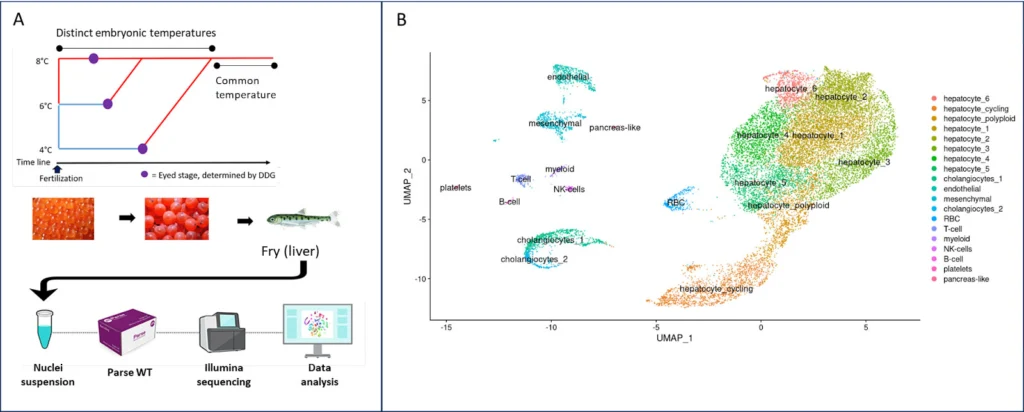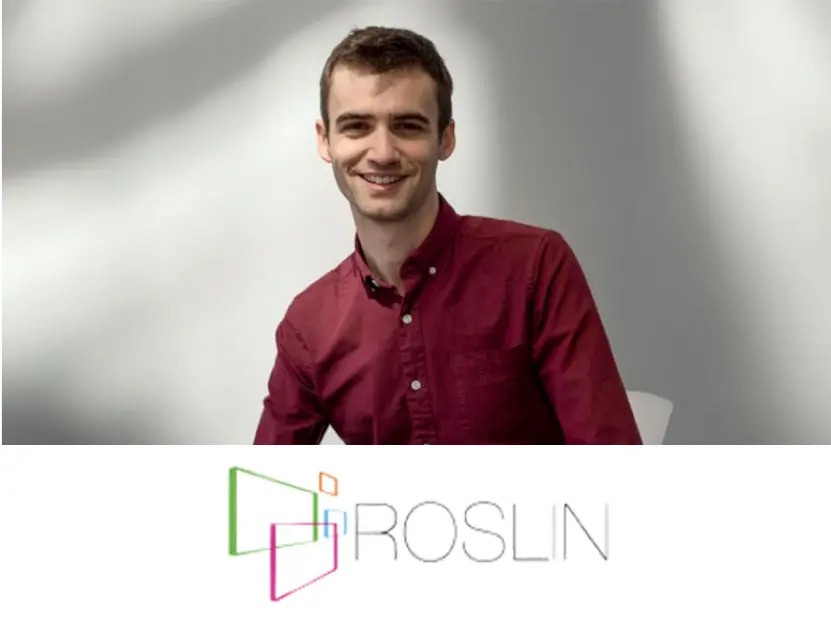Single-nuclei transcriptomics highlights the lasting impact of embryonic temperature on Atlantic salmon
Embryonic temperature influences the epigenetic regulation of fish, with long lasting effects on growth and immune development.
To investigate these effects, three groups of Atlantic salmon were grown under different temperatures (4°C, 6°C, and 8°C) from fertilisation to the eyed stage of embryogenesis, then reared at a common temperature. Shortly after embryogenesis, fish were sampled and livers micro-dissected.
The nuclei from six samples (n=2 per temperature group) were processed into single nuclei RNA-Seq (snRNA-Seq) libraries using Parse Biosciences’ Evercode WT v2 Mini kit, then sequenced on an Illumina sequencer.

Figure 1: Atlantic salmon liver analysis workflow (A) and associated UMAP (B)
On average 2,811 nuclei were sequenced per sample, with an average 3,180 genes detected per nucleus. The Evercode Whole Transcriptome assay captured a wide array of cell types and was able to differentiate many hepatocyte sub-populations. Subsequent analysis revealed cluster specific differences in gene expression driven by embryonic temperature for both hepatocytes and immune cell types, highlighting the importance of examining cellular heterogeneity.
Sample Table
| Sample | Temp Group | Organ | Cell/Nuclei |
| 4c4l | 4°C | Liver | Nuclei |
| 4c5l | 4°C | Liver | Nuclei |
| 6c4l | 6°C | Liver | Nuclei |
| 6c5l | 6°C | Liver | Nuclei |
| 8c4l | 8°C | Liver | Nuclei |
| 8c5l | 8°C | Liver | Nuclei |

"A striking breadth of cell types were identified with high gene counts"
We're your partners in single cell
Reach out for a quote or for help planning your next experiment.